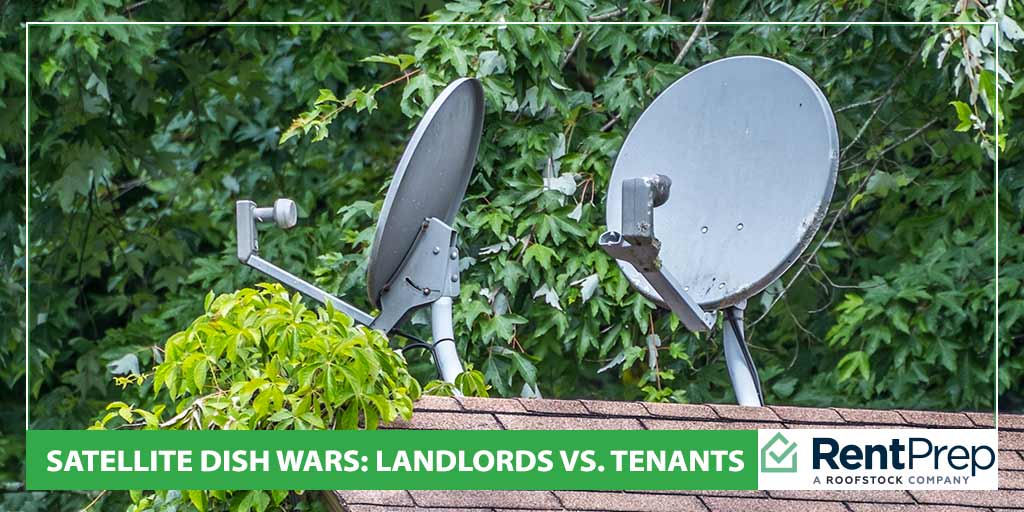
Tenants and landlords may not see eye to eye when it comes to bringing satellite service into a rental property.
No matter how badly tenants want a satellite dish, landlords often refuse to allow installation for safety issues, fear of property damage, or ruining the aesthetics.
Tenants and landlords must learn how to meet in the middle regarding satellite dishes to ensure that both parties get what they want.
Can my landlord prohibit me from installing a satellite dish?
Landlords are prohibited from restricting a tenant’s ability to get satellite dishes and antennas placed in private rented space as long as the installation of these devices meets appropriate criteria, according to the Federal Communications Commission Order 98-273.
Also known as FCC Order 98-273 or the FCC Satellite Rule, this law states that landlords cannot ban satellite dishes from a rental property.
As long as the satellite dish is 40 inches or smaller in diameter, it must be allowed on the property in private rented space when installed by a professional. The law allows the landlord to supervise installation and impose reasonable restrictions about dish placement.
My renter put up a satellite dish without my permission

Landlords often don’t want satellite dishes because they worry about improper installation, which could result in property damage. If the tenant doesn’t follow the lease then they or the installer can be held responsible for damages.
Here are some of the issues landlords are concerned about:
- Poor installation can lead to weatherproofing problems with walls and roofs and might interfere with electrical, HVAC or plumbing systems.
- An improperly installed satellite dish could become dislodged, fall and hurt someone.
- Because satellite dishes must be installed outside, such as on a wall, roof, patio or balcony, the dish and the accompanying wires can look unsightly.
Because of these possibilities, FCC Order 98-273 allows landlords to create reasonable restrictions to better regulate the installation process at their rental properties.
Examples of Reasonable Restrictions
FCC Order 98-273 supports the installation of satellite dishes in private rental space, such as an apartment balcony, patio, deck or terrace wholly within the individual tenant’s rental area.
Landlords can ban dish installation in common areas and impose additional restrictions and conditions for dishes, as long as they are considered reasonable.
Here are three examples of reasonable restrictions that a landlord might implement:
- A landlord could restrict the location of all dishes installed at the apartment complex to the inside wall of each apartment’s balcony, and insist that they cannot hang over a common area, such as a sidewalk.
- A landlord can be present at all installations and has the final say on whether the installer drills small holes in the wall for cables or simply passes cables under windows or doors.
- A landlord would be able to include a mandatory requirement that a tenant carry renter’s insurance to cover any injuries, accidents or damages to the property or other people from a satellite dish.
So, should I have my tenant remove the satellite dish
Because it is a tenant’s right to receive communication signals via satellite dish at the property he or she is renting, it’s time for landlords to embrace the inevitable and try to control the method and placement of dishes to minimize damage, keep tenants and guests safe, and preserve the look of the rental property.
Satellite dish stand for apartments
Rather than attach a satellite to the rental house it can be a nice compromise to get a satellite stand.
The image below will take you to an Amazon listing or a satellite dish stand for apartments. Just be sure to read reviews before purchasing through our affiliate link.
Note: This article is provided for informational purposes only. No information provided in this article should be considered legal advice. If you have legal questions, please consult an attorney who is licensed to practice law in your area.

